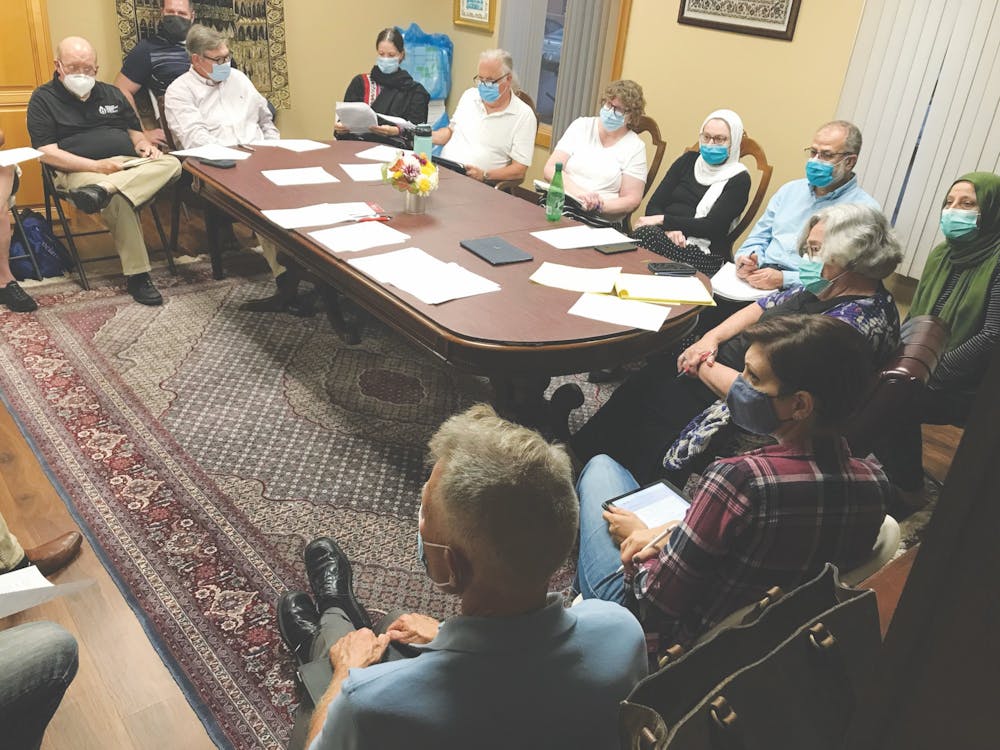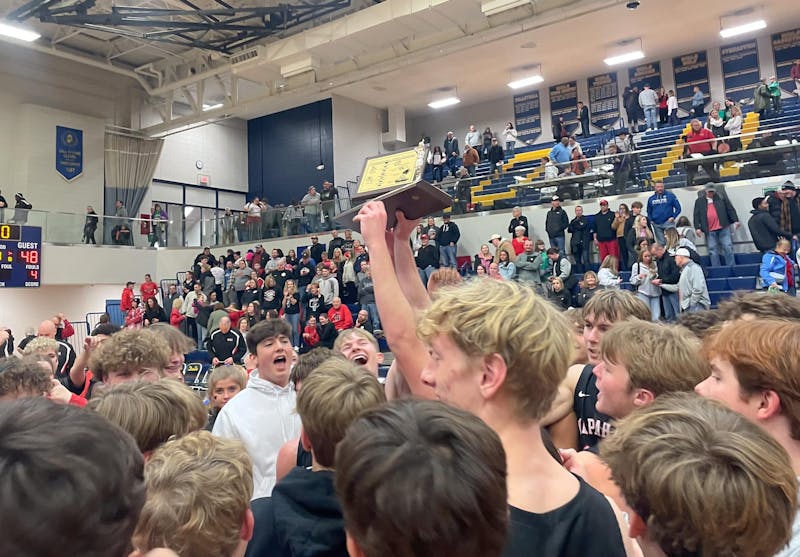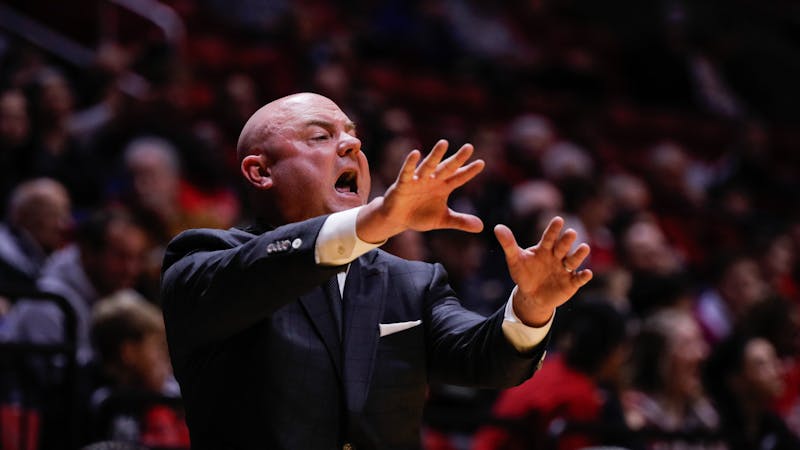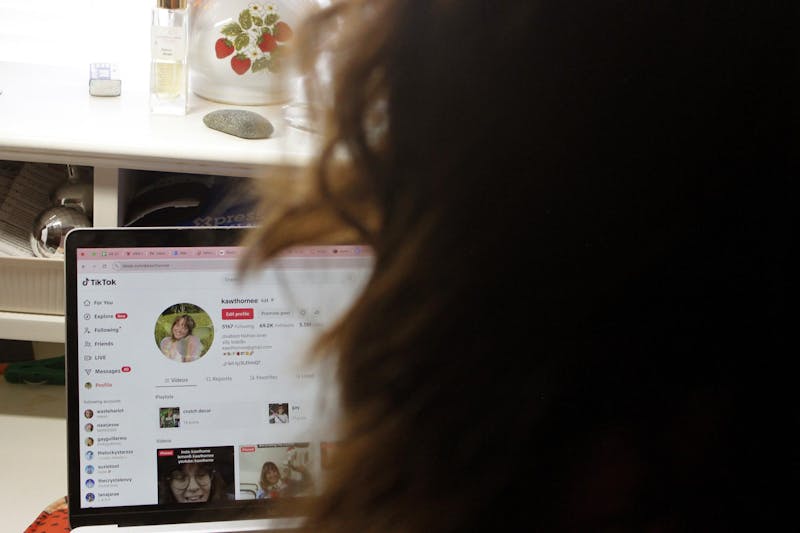Editor’s note: Muncie Afghan Refugee Resettlement Committee (MARRC) uses the phrase “our new Afghan neighbors” when referring to the refugees whom they help relocate. The Daily News, in an effort to be as accurate as possible, will continue to refer to these individuals as “refugees,” unless attributed to another source.
In 1979, Bibi Bahrami was 13. The Soviet Union had just invaded Afghanistan, and Bahrami was forced to flee from her home country. Her family settled in a refugee camp in Pakistan, where she served those around her by providing medical attention, assisting the elderly and completing everyday chores.
More than 40 years later, Bahrami founded the Muncie Afghan Refugee Resettlement Committee (MARRC) in 2021 to provide a wide variety of services to Afghan refugee families, such as housing, education and, above all else, a community.
MARRC is a subcommittee of the nonprofit organization Afghan Women’s and Kids’ Education & Necessities (AWAKEN), which Bahrami founded in 2002 to aid Afghan families — whom MARRC refers to as “our new Afghan neighbors” — in need.
In 1986, six years after she was forced to flee to Pakistan, Bahrami was able to immigrate to the United States and marry Mohammad Saber. However, she never forgot about those in Afghanistan who didn’t have the same opportunities. After 9/11, Bahrami set out to help those back in Afghanistan.
MARRC provides:
1. Housing deposit and six months of rent (if not already provided by refugee resettlement agency)
2. Furnishings for the house/apartment (these are the property of the refugees after they move in)
3. Payment of bills (gas, electric, water, sewage, internet) for six months (if not already provided by refugee resettlement agency)
4. Weekly food allowances/deliveries until Supplemental Nutrition Assistance Program benefits are active
5. A full list of household/personal essential items upon move-in (these are the property of the refugees after they move in)
6. A Welcome Family who will act as their first community connection and emergency contact upon moving in
7. Education assistance (for enrolling kids in school, providing English-as-a-second-language courses for adults, along with GED and college/university information)
8. Employment assistance (help finding jobs)
9. Wellness assistance (help connecting to doctor, dentist and mental health providers, as well as any specific or advanced providers necessary)
10. Volunteer drivers for appointments, grocery shopping and other necessary activities
11. Free community opportunities (including soccer, theater, music, fitness, public transportation, sewing classes, arts and more)
12. Driver's Education assistance (help taking driving classes and obtaining a driver's license)
13. Assistance setting up a bank account and understanding aspects of financial literacy
Source: Bibi Bahrami, Founder and President of Afghan Women’s and Kids’ Education and Necessities
MARRC uses all donations to provide financial stability and services to Afghan refugees and their families.
Hurwitz recommends emailing MARRCFundraising@gmail.com for prospective volunteers who want to join.
Source: AWAKEN website
“After 9/11, there was a hope for Afghanistan to rebuild, and it was a perfect opportunity since the United States was trying to aid the country,” Bahrami said.
Bahrami founded AWAKEN while taking classes for her associate’s degree in general arts at Ball State.
"I had this vision to go back and help those I left behind, but I was still in school, starting my family, and my sixth child had just been born," Bahrami said. "The timing wasn't good for me … but it would be good for the Afghan people. I wanted to help out these families even if I had to compromise my education. The need was greater [in Afghanistan], and there was hope of rebuilding Afghanistan."
Nineteen years after founding AWAKEN, Bahrami founded MARRC after the Taliban’s takeover of Afghanistan, when thousands of refugees who aided the United States were forced to flee their country. Amid the chaos, Afghan refugees were relocated to military camps across the United States, including Camp Atterbury outside Edinburgh, Indiana.
“When I heard about the 7,000 [Afghan refugees] in Camp Atterbury, there was so much need, so I reached out to my AWAKEN board members,” Bahrami said. “I told them that I think we should create a subcommittee of AWAKEN and involve the whole community toward this one goal."

Afghan refugees walk the grounds of Camp Atterbury, a military and civilian training post for the Indiana National Guard, outside Edinburgh, Indiana. The Muncie Afghan Refugee Resettlement Committee helps relocate refugees from Camp Atterbury to Muncie. Flickr, Photo Courtesy
Ari Hurwitz, volunteer member of the MARRC Leadership Committee, board of directors and chair of the fundraising committee, previously worked for the U.S. State Department in Washington, D.C., in 2004. While he said he didn't enjoy working for the State Department, he knew he wanted to further assist refugees in some other role.
"I think people don't really realize how much of our privilege comes from the luck of birth — so here we are sitting in the United States of America and, on our worst day, we can't imagine what these people go through,” Hurwitz said.
MARRC now exists as 12 committees, each dedicated to a specific aspect of the organization’s overarching goal. Bahrami said MARRC has brought 19 families, totaling 58 people, to Muncie and she expects 10 more families to arrive soon.
Like other MARRC members, Hurwitz often works 50 to 60 hours a week as a volunteer to help refugees as best as he can, including creating extracurricular sports leagues and working with community partners.
"We have a couple dozen adult and youth soccer leagues,” Hurwitz said. “We got an incredible donation from Dick's Sporting Goods to fully equip them with gear. A lot of really wonderful things are going on.”
MARRC’s fundraising campaigns and overall mission to help those coming from Afghanistan has been a success, Hurwitz said, which has brought the organization a surprising amount of attention.
"Honestly, I think we're too busy to notice — I didn't know we were getting a spotlight,” Hurwitz said. “We're trying to create a spotlight that puts attention on the issue, that's for sure, but I don't honestly think we have a spare second to notice that there's a spotlight.”
Bahrami said she’s proud of the unity and generosity she has received from the Muncie community and is especially grateful for the overwhelming community support for making the city a new home for Afghan refugees.
"That's the beauty — we're all supporting the same mission,” Bahrami said. “It's such a huge thing. I want my Muncie community to shine as an example for the rest of the community, [and] that's my mission in life — to make my community one of the best."
Contact Jaden Hasse with comments at jdhasse@bsu.edu or on Twitter @HasseJaden. Contact Richard Kann with comments at richard.kann@bsu.edu or on Twitter @RichardKann.





The Daily News welcomes thoughtful discussion on all of our stories, but please keep comments civil and on-topic. Read our full guidelines here.